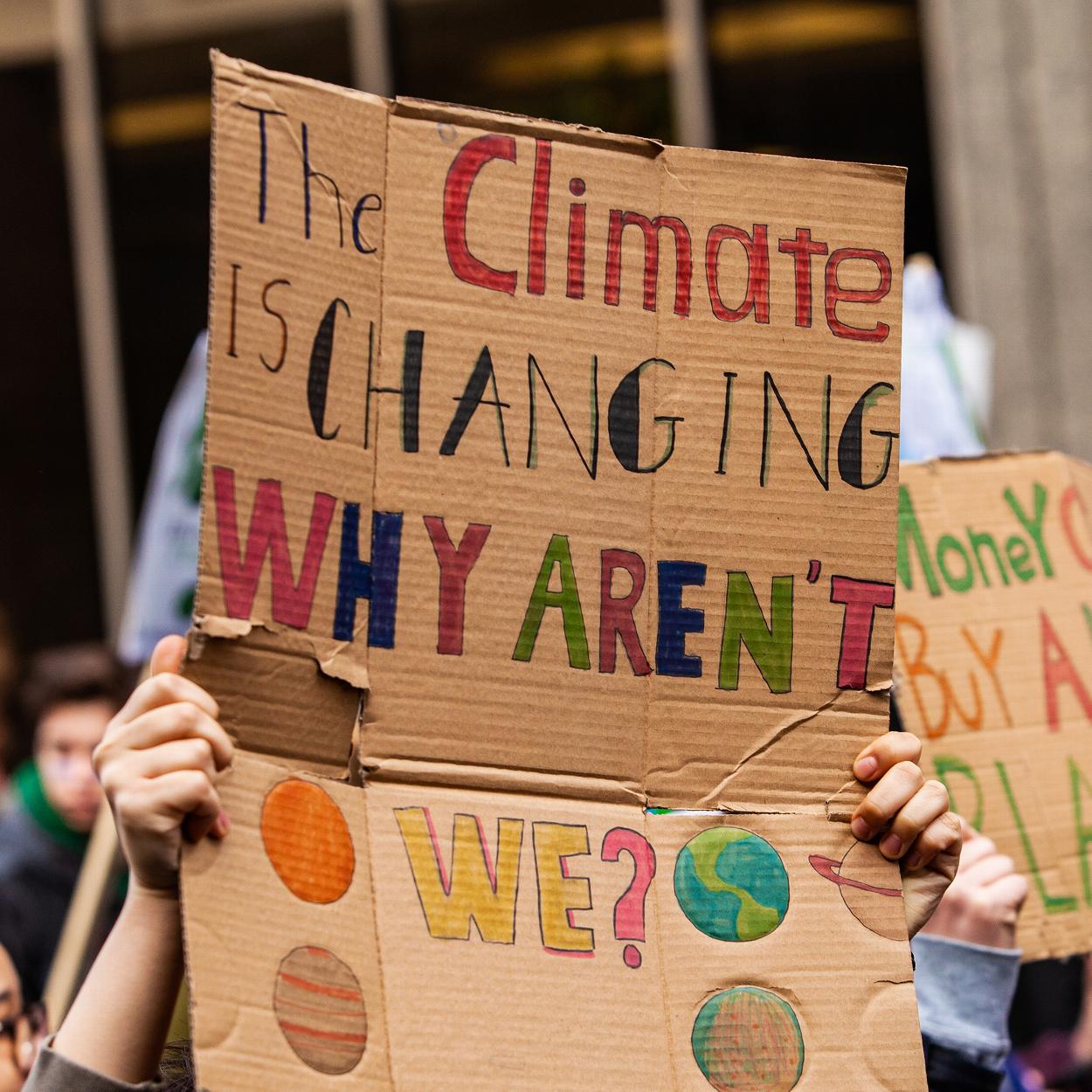Eight things you can do about climate change today
Climate change is happening.
Our world is getting warmer as we release more greenhouse gases into the atmosphere.
Humanity and other species are already suffering negative impacts as a result, from increased incidences of flooding and droughts to more wildfires and extreme heat episodes.
This is the most urgent crisis we face.
Many of us already know this, but if you're considering undertaking Carbon Literacy training then you might be thinking ‘what on earth can I do about such a huge problem?'
Thankfully, the answer is lots!
Here are my top eight tips for what you can do in your own life:

Photo by Oliver Rudkin. License
1. Know how you're contributing to the problem
Personal carbon footprint tools, like this one from WWF, are a great way of understanding how big our personal carbon footprint is and what makes it up. There are lots of similar tools for organisations of all types and sizes.
Once you have this information, you'll be in a much better position to start cutting your footprint, and that of your organisation, in the most effective way.
2. Change your diet
From Gregg's vegan sausage rolls to tofu and banana blossom, plant-based diets have been all the rage for a few years now, not least because they also tend to be low-carbon diets. If you want to have maximum impact in lowering your emissions:
- Eat all the food you buy – don't waste it
- Eat less meat and dairy, especially beef and lamb
- Avoid air-freighted food

3. Change your travel
If a journey is less than two miles, could you walk it instead of driving? Can you ditch your car and use a local car club? Can your work meeting become a Zoom or Teams call to avoid travelling at all? Can you lobby your local council for better cycling infrastructure? Could you make a flight free pledge?
4. Reduce your home energy use
No budget and renting? Put on a jumper before turning up the heating, turn off lights when you leave a room, don't heat unused rooms. If you pay the energy bill, switch to a renewable supplier – this is probably the biggest impact a renter can have.
Own and have some money to spend? Do all of the above plus: insulate and draughtproof to reduce your demand for energy. Then move on to installing good heating controls and renewable technologies.

5. What is your money doing?
The impact of making the right decisions with our finances can be huge.
Make My Money Matter estimates that making sure our pension is not invested in fossil fuels can have 21x the combined impact of giving up flying, going veggie and switching to a renewable energy provider. Talk to your pension provider and ask them if your pension is invested in companies that are extracting fossil fuels. If it is, ask them to divest from these companies.
Change your bank account. Some banks lend millions to fossil fuel companies every year, thus contributing to climate change, while others don't give them a penny.
6. Lobby for Change
If we're going to effectively tackle climate change, we need action at every level. Individuals need to do their bit, but so do organisations, governments – both local and national - and world leaders.
Whilst this can all feel out of your control, there is plenty you can do. Write to your MP or local council. Attend a march. In 2019 the UK Parliament declared a climate emergency. They did so shortly after thousands of people took the streets of London to demand more urgent action on climate change.

7. Talk about climate change
We can amplify the impact of the actions we're taking if we talk about climate change and encourage others to take action too. The more we talk about it the more normal it will become to consider climate change in our decision making. Try to put yourselves in the shoes of the person you're talking to. What do they care about that we might lose to climate change?
8. Become Carbon Literate
Carbon Literacy training is a great way to learn more. It's a day's worth of accredited learning to help you tackle the climate emergency, not only as an individual but also within the context of the organisations you work and volunteer with.
Find out when my next courses are and become certified carbon literate.

